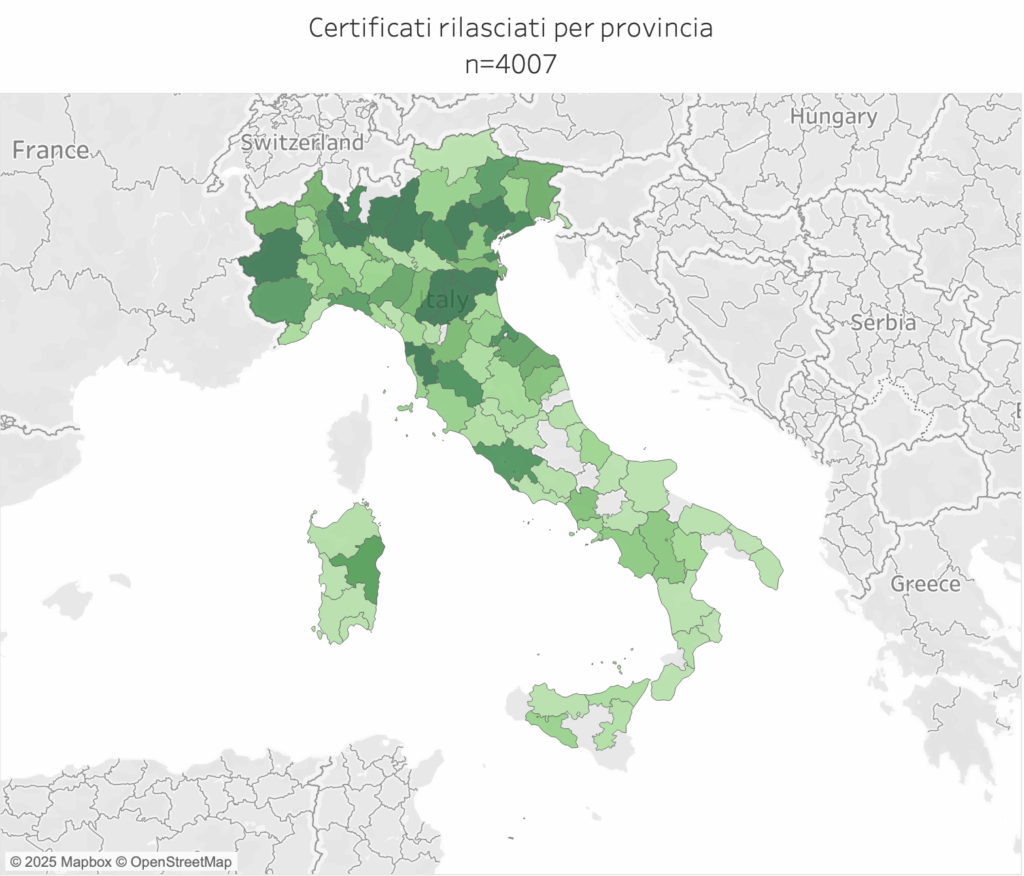On April 22, three years ago, Ciao Lapo opened the “Memory box” online training course for hospital staff of maternal and child area, employed in the departments of obstetrics, gynecology, neonatal pathology, neonatal intensive care: we present you the first important results and the first effects of our project.
The “Memory Box” training course has two goals: to train providers working in the above-mentioned departments on trauma-oriented abortion and perinatal death care, and to provide providers with personal tools to handle stressful situations and take care of themselves.
The course engages participants for about eight hours: it is divided into 10 thematic modules, totaling about six and a half hours, that address the various stages of hospital-based perinatal bereavement care and also includes two hours of self-study based on the reading of two major international scientific publications.
The Memory Box training course is completely free of charge for members: hospital departments that manage to train at least 70 percent of employees are entered in the Footprint registry, which collects all Italian departments trained on perinatal bereavement care from a trauma-oriented perspective.
Wards on the Footprint registry receive free memory boxes for bereaved parents and benefit from two hours per year of supervision by our workers.
In these three years five thousand have started the training and 4007 operators to date have completed the course and obtained the certificate.
10% of the certificates are represented by Female students and student trainees, undergraduates in midwifery, nursing and psychology: our studies on vocational trauma have shown that early training of practitioners as early as their college years enables professionals to approach critical and traumatic situations and the care of bereaved couples with better practical and emotional competence; knowing early and in detail the complex facets of trauma, perinatal bereavement, grief reactions, and what is appropriate to do as professionals to cope with the traumatic event and avoid triggering further traumatization, improves the outcome in both parents and working group.
For this reason, the “Memory Box” training course addresses in detail not only the best practices derived from decades of international and national studies, rote guidelines periodically reviewed by global health agencies and the Italian recommendations promoted by AOGOI in 2023, but also the direct views of parents who have received care in various Italian hospitals, testimonies from health care providers who have been providing trauma-oriented care for the longest time, and finally a specific focus on trauma, one on communication in critical major welfare issues in our countrynamely the unevenness of diagnostic investigations and the almost total absence of follow-up pathways that take into account both the medical and psychological aspects of perinatal bereavement.
For the first three years of the project, we generated a map of Italy based on the provinces in which operators who completed the training work: light green provinces count fewer trained operators, as the green becomes darker the number of trained operators increases.

The areas of higher density are often also due to the greater presence of birth points in the area that have chosen to do corporate training with our course and are now part of the Footprint registry.
As the map clearly shows, there are still some gray areas today: the gray provinces are those in which no operator has completed the course, despite the fact that those provinces have birth points or neonatal pathologies.
The virtuous regions with the highest number of trained operators are Emilia-Romagna, Veneto and Tuscany;
Tuscany has trained personnel in all provinces except for the province of Prato where there is no operator who has had the Memory Box course completed.
The three regions with the most gray areas are Abruzzo, Puglia and Sicily, where many provinces to date lack operators trained in trauma oriented optics: from these regions we often receive testimonies from parents who complain of an inadequate intake, the absence of psychological support and of a path of assistance adequate to the needs of a couple affected by perinatal bereavement, which instead we find more easily in other Italian regions.
It would be important for health professionals working in the grayer regions to do the free training course as soon as possible: women, couples, and midwives in the Puglia region, for example, have been trying for many years to promote improved perinatal bereavement care by periodically bringing to hospital companies informational materials about memory boxes and the importance of trauma-oriented care. In Puglia, the citizens and a good part of the health care professionals are ready for a change, which, however, needs a change of mentality on the part of those who run hospital companies and departments in the maternal and child area with respect to the importance of the helping relationship and the trauma-oriented approach to perinatal bereavement care.
With regard to the situation in Sicily, on the other hand, it is worth mentioning that theIstituto Superiore di Sanità already pointed out years ago that this region has a higher rate of perinatal death than other regions: the number of couples in need of bereavement care in Sicily is higher than elsewhere, and health workers are therefore exposed to a greater burden of professional stress. Doing our free training to be able to deliver better care is therefore a benefit for both parents and the caregivers themselves.
The goal of the “Memory Box” training is therefore twofold: on the one hand, we want all parents to receive the best possible care and support from the moment of the inauspicious diagnosis; on the other hand, we want to create a network of people, professionals and companies who know how to put the protection of assisted parents and relational competence at the center of their work, even and especially in complex and traumatic situations.
After three years, thanks to the testimonies on care collected by theOPALE observatory cross-referenced with the training map, we can say that
where the number of trained practitioners is higher, the complications of bereavement and the intensity of posttraumatic symptoms reported by parents are lower.
The effects of our trauma-oriented training on parents and caregivers are therefore benevolent, salutogenic, i.e., health-generating, and able to bring about improvements on multiple levels, from the general to the particular.In thanking all the four thousand seven people who successfully completed the training, we invite all hospital workers, students and student trainees in the maternal and child area who have not yet done so to register and carry out our free training.
Good work to all and sundry, together we can do a lot!


